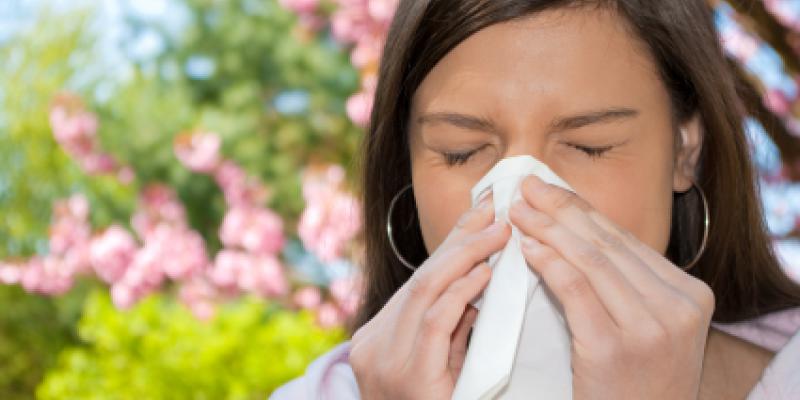It starts with a tickle. Your nose begins to twitch. Your eyes begin to water. Yes my friend, you have seasonal allergies. Seasonal allergies also known as hayfever or allergic rhinitis often peaks in the spring as pollen counts begin to rise. Symptoms of seasonal allergies include: sneezing; runny or stuffy nose; watery eyes; itchy sinuses, throat, eyes, or ear canals; ear congestion; postnasal drainage. Less common symptoms include coughing, headache, and shortness of breath. In the spring, the most common cause of allergies is tree pollen from trees such as birch, cedar, willow and chestnut. People who are affected by seasonal allergies react to the pollen or “allergens” by releasing inflammatory chemicals in their bodies called histamines. These histamines then cause inflammation or swelling in the nose, eyes, and throat.
Avoidance is a key component to seasonal allergy therapy. Those who suffer from allergies may want to stay indoors on dry, windy days; delegate lawn mowing, weed pulling and other gardening chores that stir up allergens; remove clothes you’ve worn outside; and not hang laundry outside — pollen can stick to sheets and towels.
Medications to treat allergies include antihistamines, decongestants, and steroids. Antihistamines block the effects of histamine on the body and belong to two classes: First generation (Benadryl, Chlor-tripolon) and second generation (Reactine, Aerius, Claritin). The primary difference between the two classes is that the first generation are much more likely to cause drowsiness than the other. Decongestants work to shrink the swollen blood vessels in the nose to relieve the congestion. They can be in tablet/liquid form or nasal spray. Oral medication may cause problems for people with conditions such as high blood pressure or diabetes and its best to consult your pharmacist before using them. Nasal decongestants work quickly, but overuse or using for more than 4-5 days can cause a rebound congestion where the symptoms worsen with continued use.
In certain cases, prescription medications such as steroids may be prescribed. These can be oral, inhaled or nasal. The advantage of nasal steroids is that they treat the symptoms without causing rebound congestion and many are safe for adults and young children. Other prescription medications include antihistamine eye drops which relieve the itch and irritation to the eyes.Take care of yourselves and each other.







